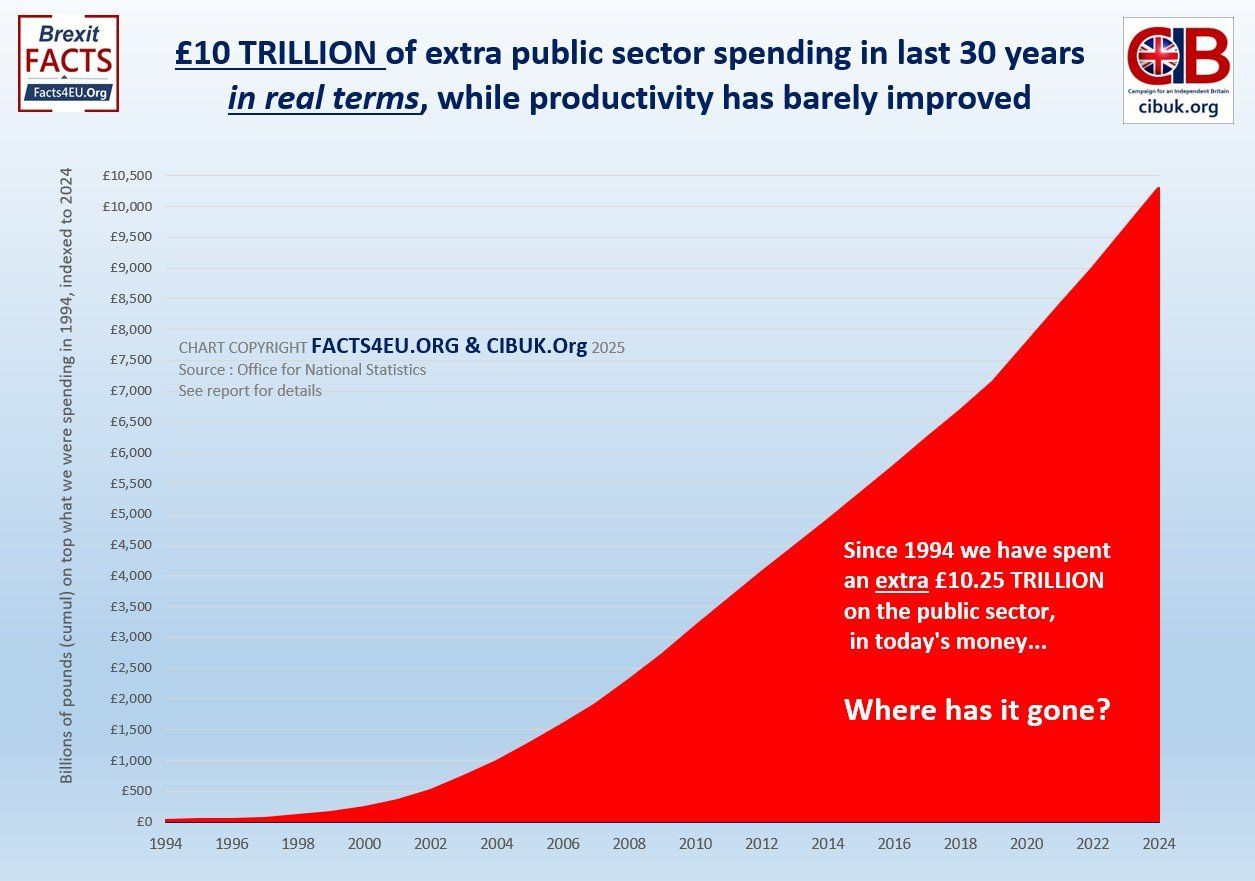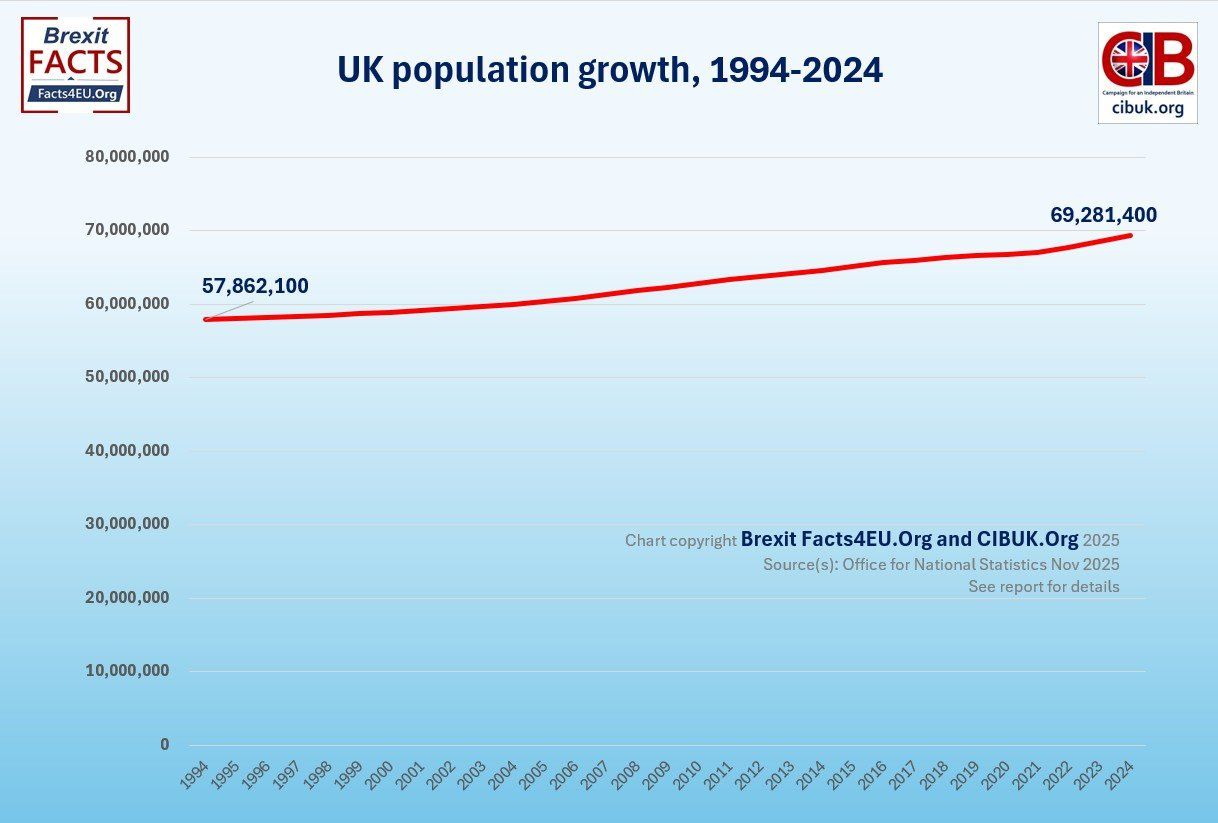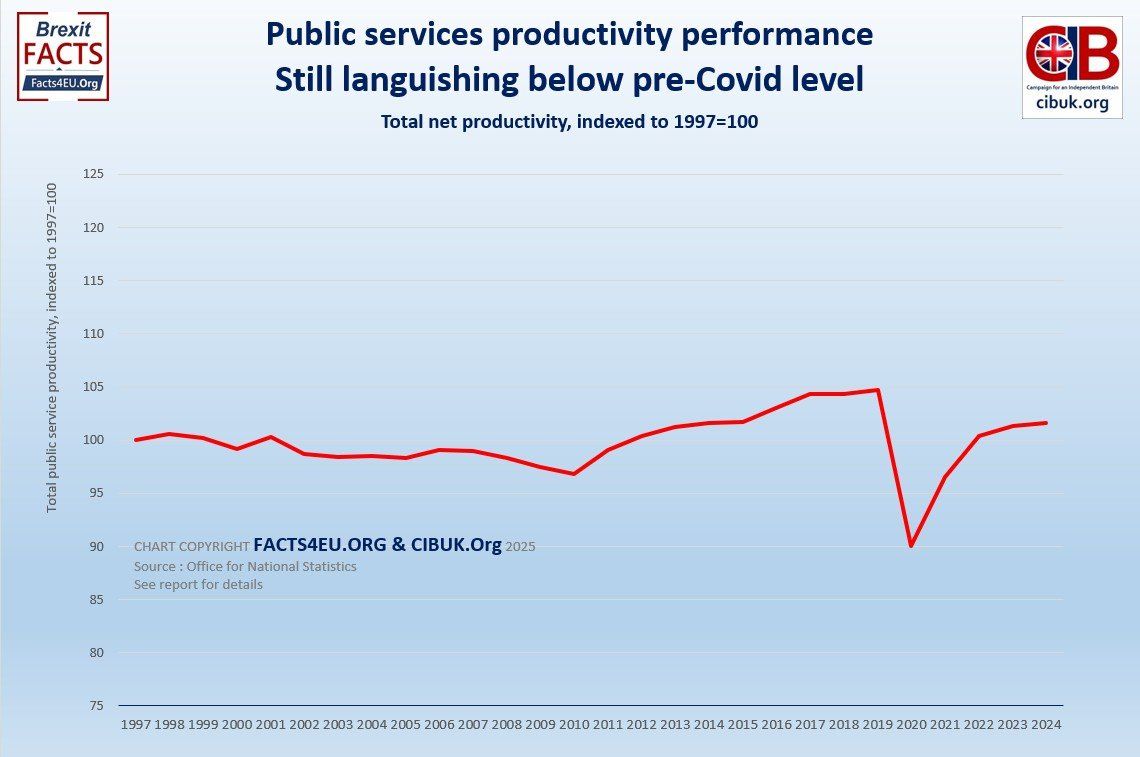As Rachel Reeves lays the ground for sweeping tax rises, a bombshell new report reveals that under successive governments, trillions have been wasted on public services.
The revelation debunks the claim that Britain’s decline is a direct result of events beyond the government’s control, such as the 2008 financial crisis and Covid.
While these black swan events contributed, Britain’s parlous public finances meant she could not fully recover from them.
The report by Brexit Facts4EU and The Campaign for an Independent Britain (CIBUK), shared exclusively with GB News, clearly demonstrates that the public sector has been the beneficiary of over £10trillion in extra funding over the last 30 years, while productivity has barely moved.
To arrive at this eye-watering figure, the researchers calculated how much extra in total has been spent, compared to the level of public spending in 1994, just 30 years ago. They then converted 1994 prices into what they would represent today.
Britain’s bloated finances
The result is eye-watering. It showed public spending rose gradually after 1994, before skyrocketing in the early 2000s.
After 2002, more and more taxpayer cash was funnelled into the public sector year on year, seeing costs spiralling.
Ever-increasing spending appeared almost totally unaffected by global events, continuing its near-vertical trajectory all the way to 2024.
What had been a £0.7trillion annual spend in 1994 was now a £1.3trillion bill for the taxpayer, a 105 per cent increase in the spend.
This amounted to a galling £10.3trillion over the 1994 level over those 30 years.

Outpacing population growth
Rather than tracking population growth, public spending has outpaced it (see chart below).
In 1994, 57,862,100 people lived in the UK. In 2024, that number had risen to 69,281,400.
This represented a 19.7 per cent increase over three decades. It is certainly a notable rise, but it is completely dwarfed by the 105 per cent growth in the public sector budget.

More money for less
Despite skyrocketing public spending against a much steadier population growth, public services have not improved.
On the contrary, they have degraded.
Even after a £201.9billion injection into the public healthcare system in 2024, 7.41 million people currently sit on NHS waiting lists in England awaiting hospital treatment.
Others are forced to wait as much as a month for GP appointments, while accident and emergency wards regularly remain overfilled.
Britain’s roads are also crumbling, with 36 per cent barely scraping an adequate rating, while a shocking 17 per cent were rated poor in 2024, according to the Asphalt Industry Alliance.
Meanwhile, the Ministry of Defence is currently “significantly pressed for money”, according to Professor Trevor Taylor, of the Royal United Services Institute.

Productivity crisis
To go along with ballooning costs, Brexit Facts4EU and The Campaign for an Independent Britain have found productivity levels in the public sector are sorely lacking (see chart above).
As public funds increased sharply throughout the 2000s, the performance levels flatlined.
After a slight uptick in the late 2010s, productivity plummeted as Covid hit.
Since then, productivity has failed to recover despite record spending and now languishes at far below pre-pandemic levels.
As the researchers explain, these factors raise a salient question: where has the money gone, and how does the Chancellor intend to recoup what’s been lost?
Our Standards:
The GB News Editorial Charter







Follow